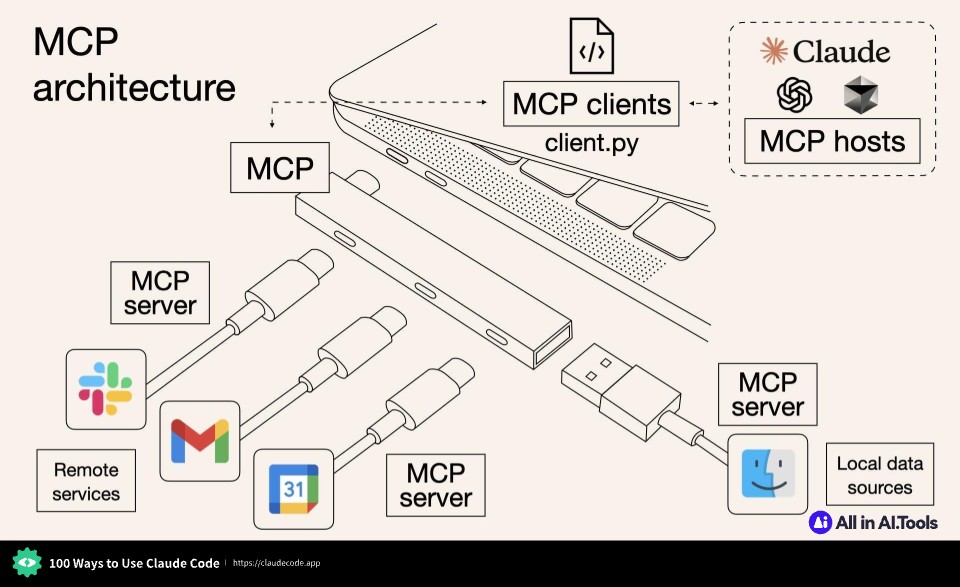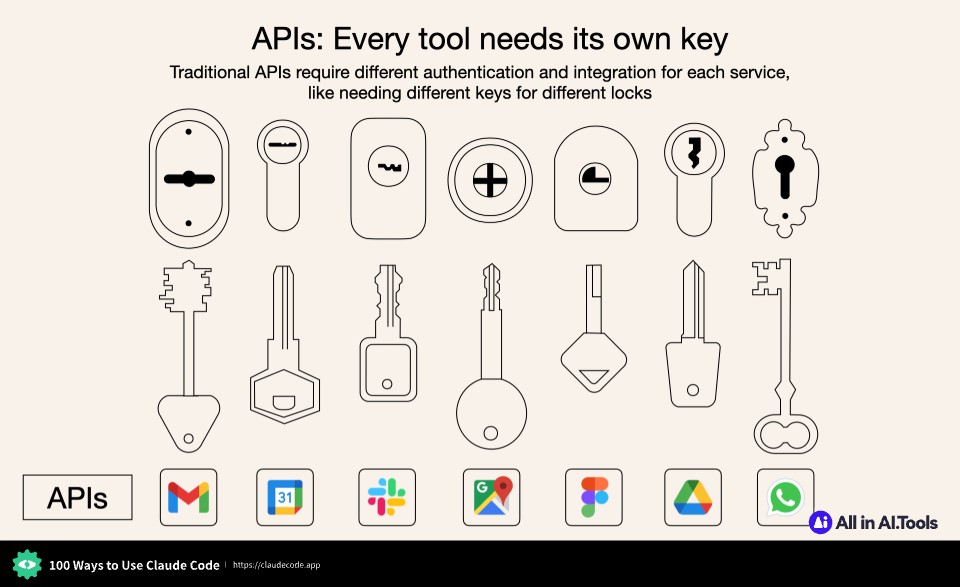Discover and integrate MCP servers to extend Claude's capabilities
Postgres MCP Pro provides configurable read/write access and performance analysis for you and your AI agents.
CTX: A tool for generating structured documentation from files, repositories, diffs, and URLs through a modular architecture with powerful configuration options for AI-assisted development workflows. The missing link between your codebase and your LLM. Context as Code (CaC) tool with MCP server inside.
An MCP (Model Context Protocol) server for generating Xmind mind maps. This server allows LLMs to create structured mind maps through the MCP protocol.
MCP Server implementation for the Model Context Protocol (MCP) enabling AI tool usage - Realtime Flight Search
Powerful Model Context Protocol (MCP) implementation for visualizing directory structures with real-time updates, configurable depth, and smart exclusions for efficient project navigation
AI Agents & MCPs & AI Workflow Automation • (280+ MCP servers for AI agents) • AI Automation / AI Agent with MCPs • AI Workflows & AI Agents • MCPs for AI Agents
A Whistle proxy management tool based on Model Context Protocol that allows AI assistants to directly control local Whistle proxy servers, simplifying network debugging, API testing, and proxy rule configuration through natural language interaction.
MCP server to give llms such as Claude, GitHub Copilot etc full PowerBI model context (from input .pbix) through tools based on PBIXRay python package.
MCP Server for the Peacock extension for VS Code, coloring your world, one Code editor at a time. The main goal of the project is to show how an MCP server can be used to interact with APIs.
WhatsApp MCP Server (TypeScript/Baileys)
MCP tool for LLM interaction with EPUB and PDF files.
FRED (Federal Reserve Economic Data) API integration with Model Context Protocol (MCP)
An OpenStreetMap MCP server implementation that enhances LLM capabilities with location-based services and geospatial data.
MCP server for fetch web page content using Playwright headless browser.
Tools for seamless integration of different systems and services.
Cloud infrastructure and deployment management tools.
AI-powered tools for creative design workflows across 3D and 2D mediums.
AI-powered tools for product development, design review, and performance monitoring.
Tools for monitoring, analytics, and operational efficiency.


Explore Claude Cowork, Anthropic's groundbreaking AI agent built on Claude Code foundations. Discover how it enables file access, document creation, and task automation for everyone—not just developers. Learn how it integrates with MCP servers and extends Claude Code capabilities.
Explore the major [Claude code](https://claudecode.app) 2.1.1 update featuring 109 CLI improvements, automatic hot reload for skills, sub-agent execution, enhanced security, performance optimizations, and smarter prompt behavior. Learn about all the new features and improvements.
Master the art of prompting Claude with Anthropic official guide. Learn 10 proven strategies to 10x your Claude Opus and Sonnet 4.5 performance. Discover how better prompts lead to better results with practical examples and real-world applications.
Deep dive into sophisticated SSH workflows for Claude Code power users. Learn zero-friction authentication, session management, and advanced techniques that transform your vibe coding experience.
MCP (Model Context Protocol) is an open protocol that standardizes how applications provide context to LLMs. Think of MCP like a USB-C port for AI applications, providing a standardized way to connect AI models to different data sources and tools.
MCP Servers are lightweight programs that expose specific capabilities through the standardized Model Context Protocol. They act as bridges between LLMs like Claude and various data sources or services, allowing secure access to files, databases, APIs, and other resources.
MCP Servers follow a client-server architecture where a host application (like Claude Desktop) connects to multiple servers. Each server provides specific functionality through standardized endpoints and protocols, enabling Claude to access data and perform actions through the standardized protocol.
Yes, MCP Servers are designed with security in mind. They run locally with explicit configuration and permissions, require user approval for actions, and include built-in security features to prevent unauthorized access and ensure data privacy.